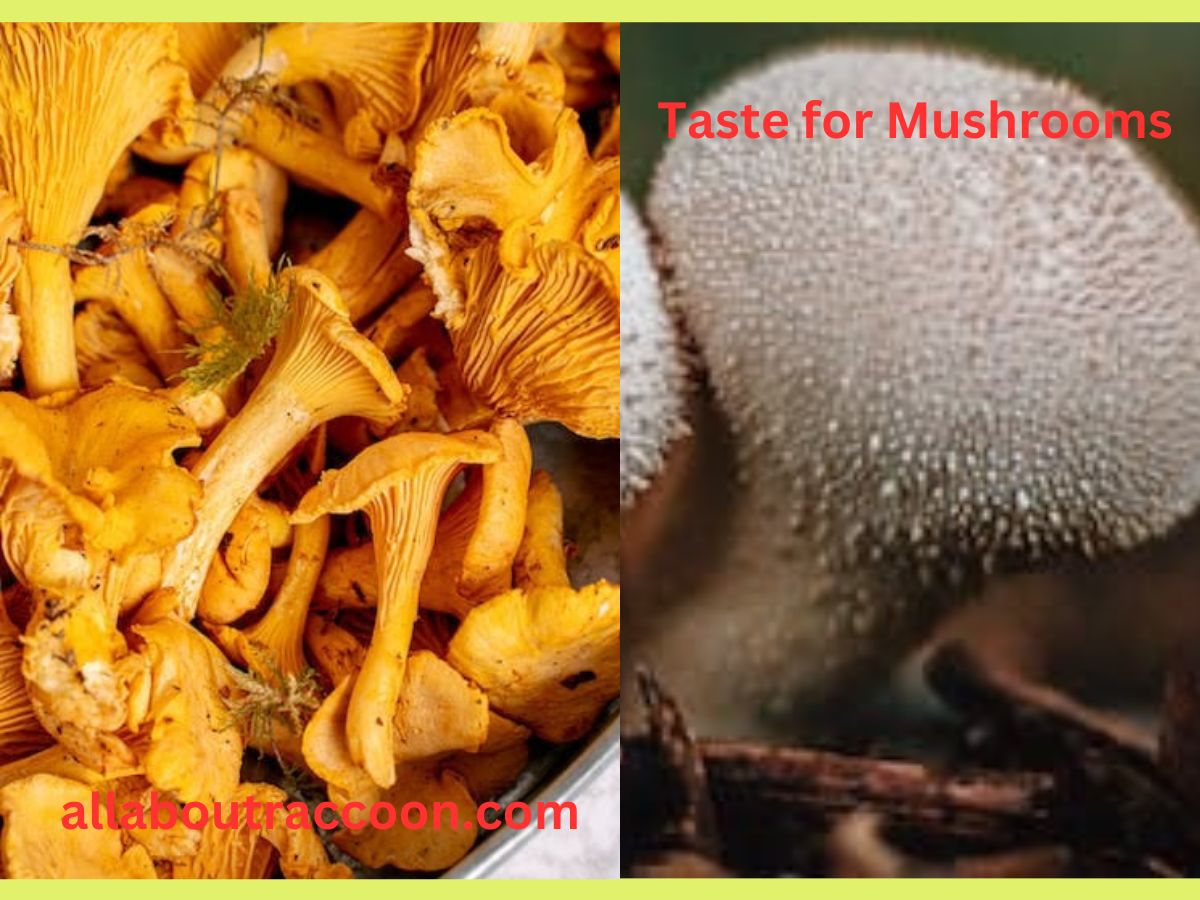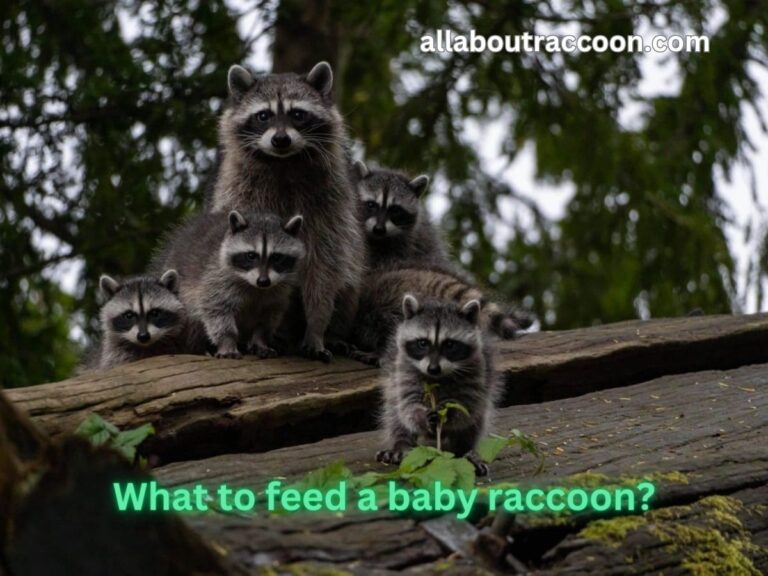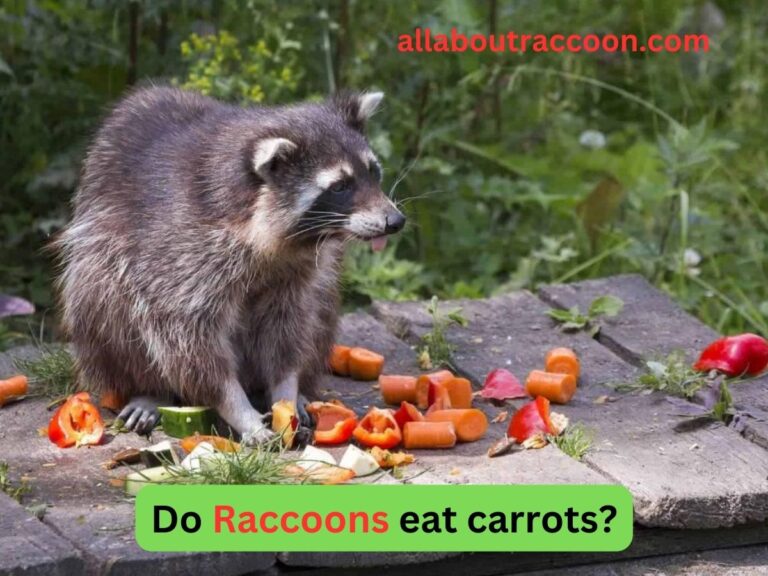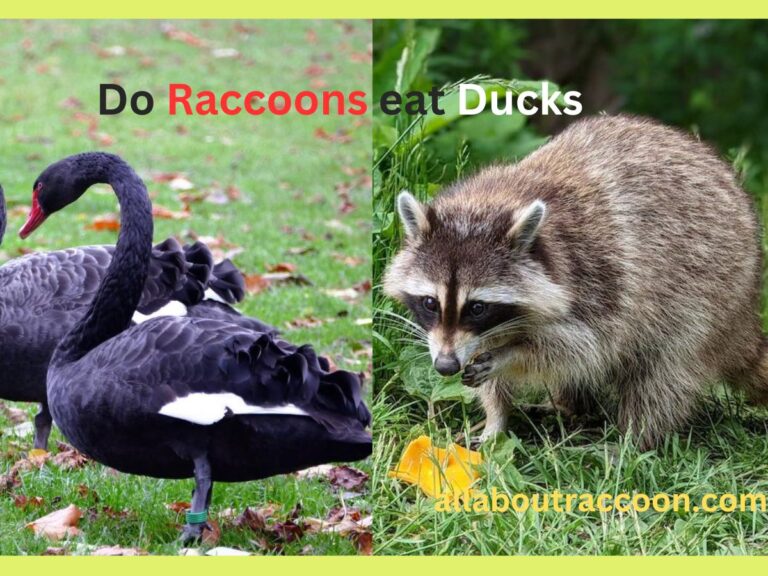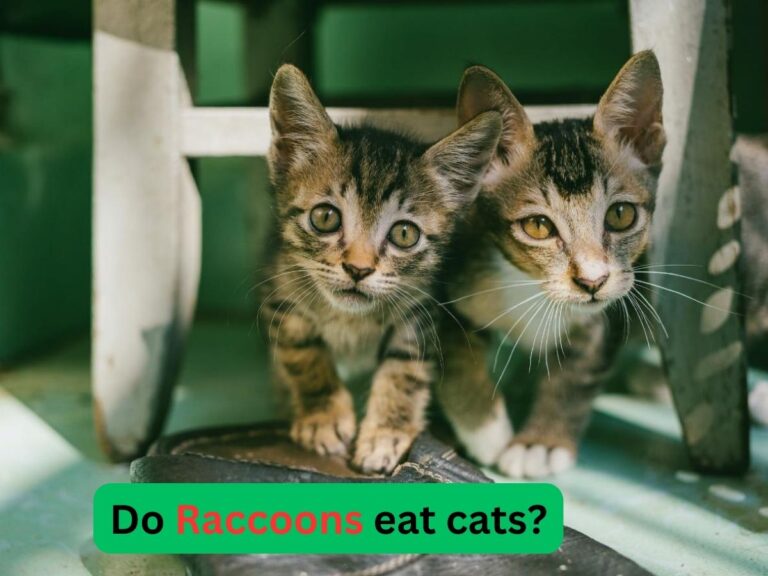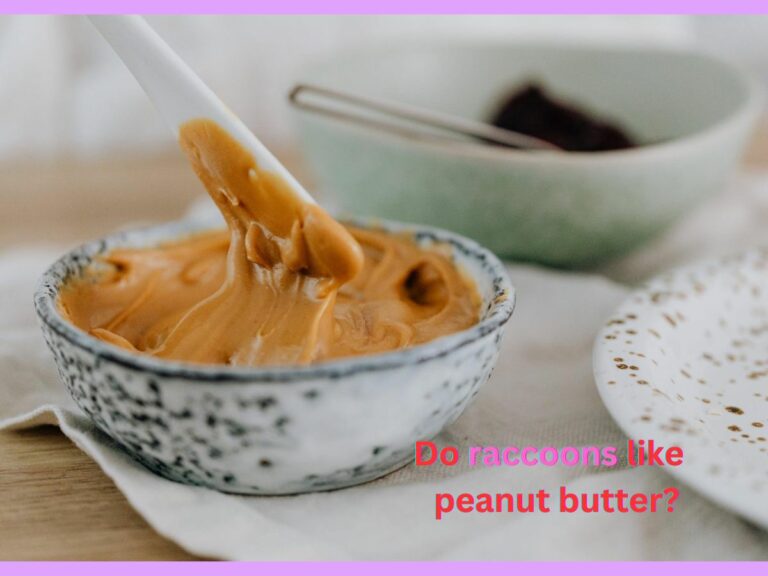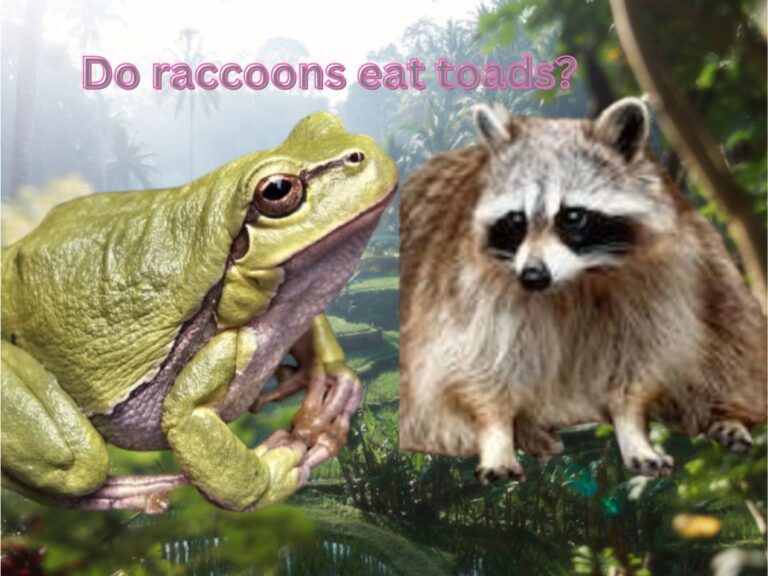Do Raccoons eat mushrooms?-A Fascinating truth
Do raccoons eat mushrooms? Why do they eat mushrooms? What benefits do they get from mushrooms? How do they get access to mushrooms? All these questions often arise a debate among wildlife experts and raccoon enthusiasts. If you have the same kind of questions and want to be answered your questions. Congrats! You’ve landed on the right web page.
This post contains a treasure of knowledge for raccoon Enthusiasts. Here you will find accurate and up-to-date information about raccoons eating behavior. Raccoons are omnivorous and eat a variety of food including plants and animals; but what about mushrooms? Whether they eat mushrooms or not, let’s explore it…
Opportunistic eaters!
Raccoons are opportunistic eaters. They opportunistically find out the food items and feast on them.
Raccoons are intelligent creatures, but they are lazy in searching for food items. So, they always prefer to eat food that is easy to avail; doesn’t matter whether it is fresh food from the wild or leftovers from trash cans. They just have to eat to satisfy their hunger.
They love to explore and eat new flavors just like mushrooms. Yes, mushrooms. They can eat mushrooms, but from where and why? Let’s explore it…
What are mushrooms?- Basic concepts
Before it, we discuss raccoons eating behavior about mushrooms, it’s important to know a little bit about mushrooms.
So, mushrooms are unique organisms belonging to the Fungi kingdom. They come in various shapes and colors, with some edible and others toxic. These fascinating organisms play essential roles in ecosystems and have captivated the curiosity of scientists and nature enthusiasts alike.
Do raccoons eat mushrooms? A Forest Buffet!
Do raccoons eat mushrooms? The answer is a resounding “Yes!” The forest serves as a grand buffet of food for these masked bandits, and mushrooms are undoubtedly part of their food. Research shows that raccoons can eat both cultivated and wild mushrooms.
Like us humans, raccoons like to eat a wide range of food that offers multiple flavors and tastes. But, mushrooms are not a major part of their diet.
- The raccoons enjoy eating the earthy delights of mushrooms, while some other animals do not do so! Thus, It’s a golden opportunity for raccoons to eat mushrooms.
- It would not be wrong to say that the curious nature of raccoons drives them to explore new tastes in the wild including mushrooms.
- The raccoons living in urban and suburban areas are less likely to eat mushrooms than those in the wild.
What kind of mushrooms is a top priority for raccoons?
Raccoons like to eat a variety of mushrooms. Here is a brief view.
Chanterelles:
These edible mushrooms have a bright yellow color and are convex in shape with wavy caps. It is a special type of mushroom because it is an excellent source of polysaccharides. Chanterelles are the favorite food not just for humans but also for raccoons. Yes, raccoons! They like to eat chanterelles.
Morels:
Hurrah morels! Morels are another edible type of mushroom. These unique morels have a yellow-brown color with a honeycomb-like texture. Same as chanterelles, morels are also a favorite food of raccoons and as well for humans. Morels are a good source of vitamin D. Thus, it is good for health benefits.
Puffballs:
Puffballs mostly grow in openings of forests. These mushrooms have a white sponge-like structure. When the mushrooms become mature, the internal white sponge structure turns yellow. The puffballs are edible and safe for raccoons. And no doubt they eat well on these mushrooms.
Matsutake:
Matsutake is well-known for its aromatic odor and flavor. These mushrooms usually grow in the season of Autumn. When raccoons come across these distinctive mushrooms, they definitely consume them. These mushrooms are a good source of essential nutrients like vitamins, proteins, and minerals.
Bolete Mushrooms:
Lastly! you may be thinking about Bolete mushrooms. So, let me tell you. Bolete is a large group of mushrooms; many of them are safe and eatable. If raccoons come across these mushrooms, they never hesitate to eat them. These mushrooms are rich in proteins and carbohydrates.

Why do raccoons eat mushrooms?
Raccoons are omnivorous and eat a variety of food among plants and animals. And mushrooms too. Actually, raccoons prefer to eat food that is readily available to them. In this aspect, mushrooms are easy to available in certain environments, especially during late summer and fall. Mushrooms grow abundantly in their natural habitats. So, it’s a strong point in the evidence of raccoons eating mushrooms.
Raccoons’ curiosity leads them to nibble on various objects, exploring new tastes and textures. Sometimes, they might accidentally eat mushrooms found in their surroundings during their investigations.
Nutritional Benefits of Eating Mushrooms:
Raccoons can gain some nutritional benefits from mushrooms, though they are not a primary part of their diet. Mushrooms contain various nutrients, such as
Protein: Mushrooms contain protein, which is essential for muscle development and maintenance.
Vitamins: Some mushrooms provide vitamins like B-complex vitamins (e.g., riboflavin, niacin) and vitamin D, which play crucial roles in metabolism and overall health.
Minerals: Mushrooms contain minerals like potassium, phosphorus, and selenium, which are important for various physiological functions.
Fiber: Certain mushrooms can contribute to the raccoon’s dietary fiber intake, supporting digestive health.
How do raccoons avoid poisonous mushrooms?
Raccoons are intelligent creatures. They know how to avoid toxic mushrooms by using their sense of smell. So, raccoons and other animals avoid poisonous mushrooms by detecting their smell or taste. Some studies suggest they might recognize the poison after eating a certain amount and then avoid it. Color may not play a pivotal role as most herbivores, including raccoons, are color-blind.
- Raccoons take a small bite of the mushroom and wait to see if it makes them sick. If they experience any adverse effects, they learn to avoid that type of mushroom in the future.
Raccoons help in mushroom seed dispersal:
Interestingly, raccoons also play a crucial role in the ecosystem as accidental mushroom farmers. How is this possible, you may wonder? Well, it’s all in the paws!
- As raccoons walk through the forest, they unknowingly collect mushroom spores on their paws and fur. As they move about, these spores are dispersed across the forest floor, acting as nature’s way of seeding new mushrooms.
- In a way, raccoons become vital contributors to the cyclical growth of fungi, making them not just consumers but also guardians of the woodland ecosystem.
Conclusion:
The answer to the question “Do raccoons eat mushrooms?” is yes. However, mushrooms are not the basic part of their diet. If raccoons come across mushrooms, they will surely eat mushrooms. It means they eat opportunistically, but not actively!
These clever foragers indeed enjoy the diverse flavors and textures offered by nature’s fungi. Mushrooms provide raccoons with essential nutrients such as vitamins, proteins and, minerals.
So, the next time you venture into the woods, keep an eye out for these masked culinary explorers. Embrace the spirit of exploration and wonder, just like our raccoon friends, and let the enchanting world of nature continue to amaze us all. Happy foraging!
FAQs:
No, raccoons normally do not eat Amanita mushrooms. Amanita mushrooms often contain toxins that can be harmful to animals, including raccoons.
These are toxic to humans, but a variety of wild animals eat them. However there is no strong evidence to suggest that raccoons eat Lactarius mushrooms.
Yes, raccoons can eat fungi. Being omnivorous they can eat a variety of foods among plants and animals including fungi.
If you ENJOYED this article, you must like these related articles about raccoons eating behavior:

